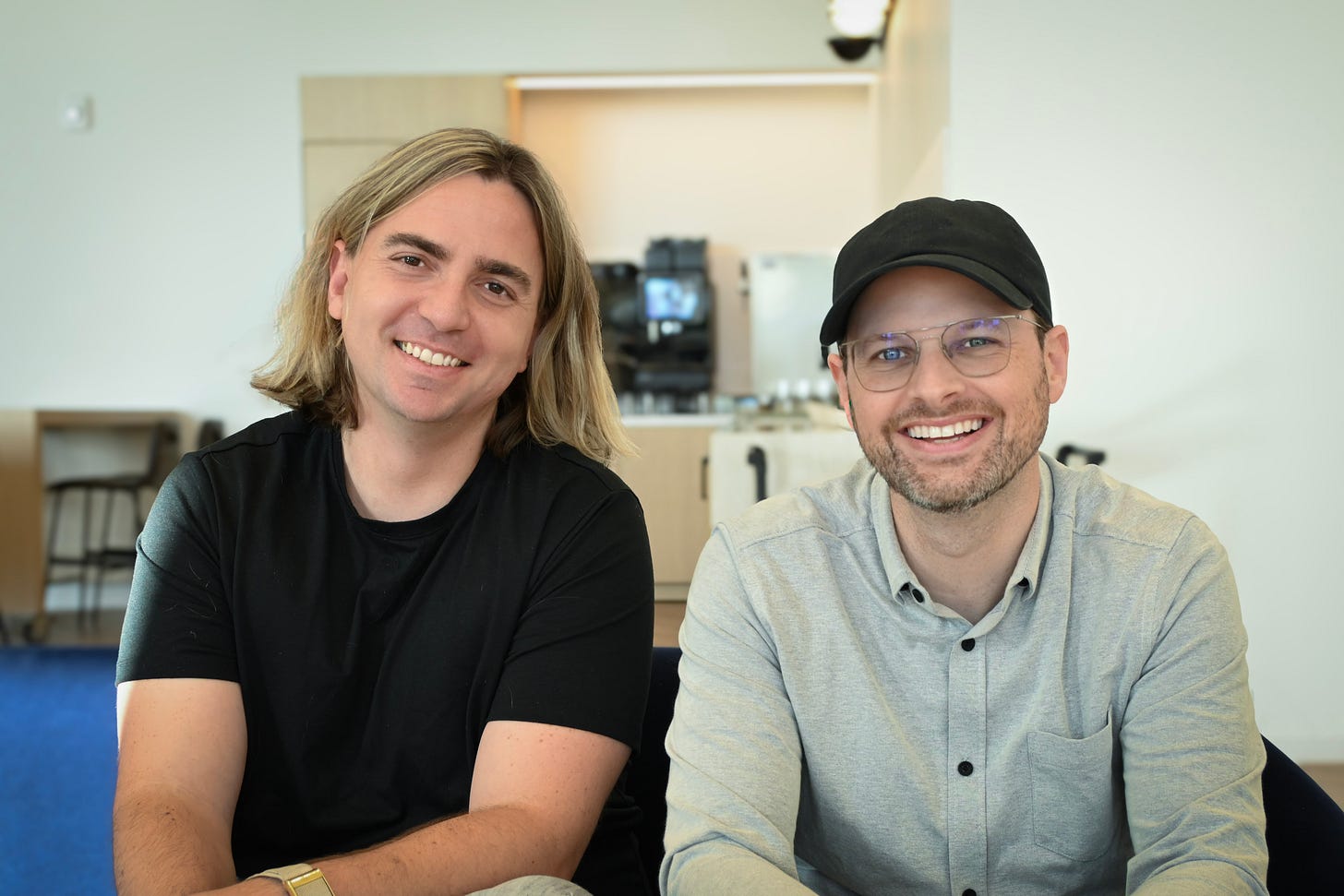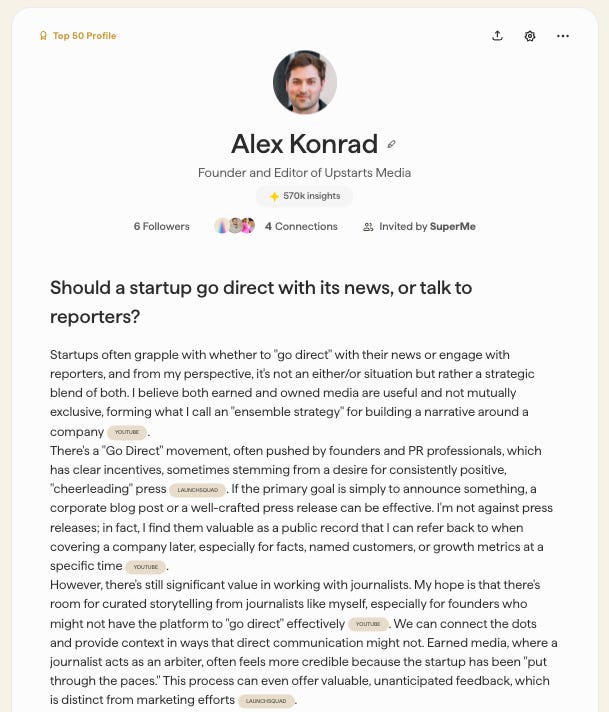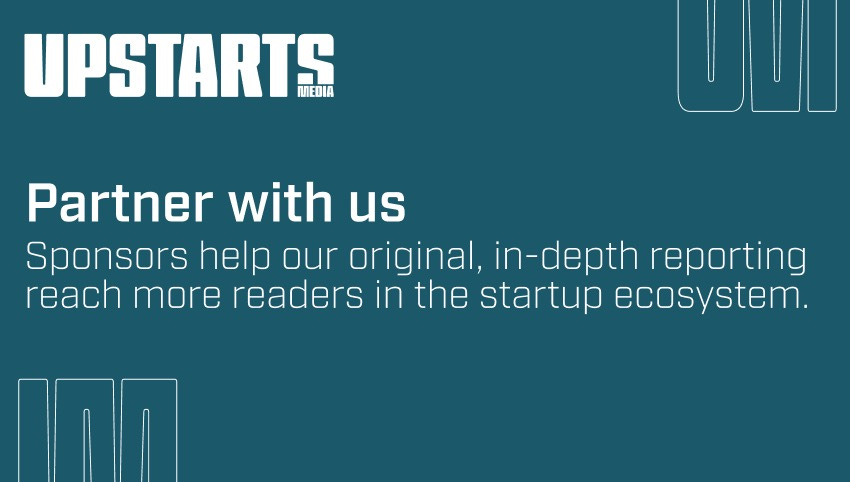They're Building An AI Expert Network. Would You Ask It For Help?
SuperMe is launching with $6.8M in funding to connect users with AI versions of highly-online experts like Elena Verna, Lenny Rachitsky... and me.

The Upshot
In the world of startup growth, Elena Verna is a big deal.
She currently works at one of AI’s buzziest unicorns, app builder Lovable, and she’s advised a bunch of startups and public tech companies, including Dropbox, Miro, MongoDB and Superhuman. On LinkedIn, she’s a ‘Top Voice’ with 170,000 followers; her newsletter on Substack boasts more than 75,000 subscribers.
And she’s got a pet peeve. Wherever she shares her advice – lessons for product-led growth, or marketing tactics for the AI era – she gets the same basic questions back.
“It’s one of the most annoying things for me,” she tells Upstarts. “I’ve written about them already every single time, and I just have to explain them over, and over, and over again.”
So three months ago, Verna agreed to an experiment: training an AI agent version of her, to engage and respond on her behalf. Through a new startup called SuperMe, she hooked up her online presence – newsletter archive, podcast tapings, social posts, work experience on LinkedIn – and within a day, her AI Profile was ready to respond on her behalf, in her own voice.
Now, if someone comments on a LinkedIn post or sends a direct message over X or Substack, she can point them to SuperMe for her answers to basic queries like “When should I make my first growth hire?”
“It’s a way to automate some of the conversations that I used to have that are just so repetitive from my perspective,” Verna says. “It’s been an unlock for me to better scale my time, and reach people who want my opinion.”
The brainchild of two startup veterans who worked together at social media site Pinterest and more recently at shopping unicorn WhatNot, Casey Winters and Ludo Antonov, SuperMe is still very early. About 3,000 people have set up AI profiles of themselves, including influencers like Lenny Rachitsky, leading to 30,000 user conversations; the startup won’t say how many users it has, however, and it’s not trying to make money just yet.
To build out SuperMe, Winters and Antonov have now raised $6.8 million in a seed funding round led by Mike Duboe at Greylock, with a bunch of product leaders participating personally, including Superhuman CEO Shishir Mehrotra and Shopify executive Archie Abrams.
They have their work cut out for them. Get it wrong, and SuperMe’s answers would feel like toothless AI slop, no better than asking ChatGPT to imagine a similar response, or what you’d get simply Googling. Other startups, like venture-backed Delphi, are developing similar ‘digital minds’.
But if SuperMe gets things right, its platform promises to save time for well-known experts, and help lesser-known ones find an audience. They’ll be able to make money off their knowledge, too.
And it’s fascinating to Upstarts as another logical hub in a developing stack of AI-enabled apps that we’ve covered recently, including Goodword’s new-look personal CRM and connections booster, and Handshake’s upcoming agents that could represent job seekers and hirers in the early stages of the recruiting process.
If such a future sounds a little dystopian, SuperMe’s founders hear it, too. It’s the interaction between the human expert and their AI where Winters says he sees real value building up.
“We don’t believe these AI Profiles are replacements for humans,” he says. “But we think AI is the huge unlock, making something that might have been way too much effort before, or impossible.”
Join leading startups like Brex, Notion, Vanta and Structify in partnering with Upstarts to help our in-depth and original reporting on breakout startups from Granola to Gameto to reach the wider ecosystem every week.
Upstarts is now speaking with partners for 2026 opportunities across our newsletter, events and upcoming podcast. Fill out the interest form below, or email us at partnerships@upstartsmedia.com.
Knowledge, unevenly distributed
SuperMe’s origins trace to backgrounds far from Silicon Valley and a desire to share career knowledge outside of its well-trodden tracks. “We weren’t Stanford grads immersed in startups. Ludo came from Bulgaria, and I came from New Orleans,” Winters says.
Winters’ tech career started in Chicago as an intern for Apartments.com, then an early employee at GrubHub. He moved to the Bay Area for a job at Pinterest, leading product for its growth teams, where he met Antonov.
A former software engineer for Microsoft and Hulu, Antonov was in charge of Pinterest’s growth engineering team. The duo were part of an effort to rebound Pinterest’s momentum after Facebook had made a feature change to stunt its growth. “The rocket ship had kind of flattened out. It was our job to figure out how we could replace it,” Winters recalls.
They did (leaning into Google Search) and Pinterest went public in 2019. By that time, Antonov had already moved on to ride-hailing app Lyft to lead engineering teams there; Winters was advising a bunch of notable tech companies, including Airbnb, Canva, Discord, Figma and Tinder, both through a stint at Greylock and on his own.
“The people who have real earned expertise within companies are often not the same ones who have the public brands.”
Winters had just become chief product officer at one of his clients, events platform Eventbrite, when the pandemic ground its business to a halt. Revenue went below zero, something he didn’t know was possible (refunds exceeded transaction). But he stuck around until leadership had gotten the business back on track.
“I felt like leaving Eventbrite to its own devices, to figure out a new strategy, wouldn’t be what a leader does,” he says.
Back advising startups, Winters was hanging out at Whatnot when Antonov, by then its head of engineering, proposed they team up to build something in AI. Working with a group that mentored underrepresented founders had made them both appreciate the value of the networks they’d built in tech, and how shut off they were.
“How do you share this knowledge sitting in the heads of the top 1% people?” Winters says they wondered. “How do you make it transparent who is really good, and can actually help?”
They got to work at Greylock’s offices, where Duboe says he credits Winters in part for joining in the first place, on applying AI to expert networks. ChatGPT and AI models weren’t solving the problem because their answers were too watered down and made things up to fill in gaps, they believed.
Custom GPTs tailored to an individual were too hard to refresh. And neither solved a bigger problem: LLMs trained on public data wouldn’t have access to an expert’s best advice, often shared in private or over a WhatsApp or Slack message.
“The people who have real earned expertise within companies are often not the same ones who have the public brands,” says Duboe. “And much of their expertise isn’t ingestible by the LLMs.”
Supersized agents
SuperMe’s solution is to encourage experts to connect private artifacts, such as their Google Docs and Granola notes, then generate essays or takeaways for them to approve for public consumption.
The hope is that more experts can make their lessons accessible that way without the need to become a prolific LinkedIn poster or blogger, Winters says. SuperMe’s search engine and feed can then surface new expertise to users who ask questions, like one Winters asks his own AI Profile in a live demo: “How do I improve the engagement quality of my marketplace’s supply?” (The AI Winters tells him, via decent sounding audio, to seed communities with dedicated managers, and partner with bloggers.)
Where SuperMe stands out, according to early users like Verna and Nikhyl Singhal, a former product executive at Google, Credit Karma and Meta and now the founder of a professional community called Skip, is that its answers don’t hallucinate, and improve consistently. SuperMe will tell a user when an expert hasn’t taken a position on a certain subject; alerts sent back to the expert give them the option to update it with an answer.
Seeing what questions come in to their AI profiles is a valuable way for experts like Verna and Singhal to generate new ideas for posts and podcast episodes, each tells Upstarts in separate interviews.
“It’s the best way to keep on top of the latest trends,” Singhal says.
Over time, SuperMe plans to make money by tiering a user’s engagement with an expert, so that if they want to ask more questions, they pay a subscription shared by both expert and the company. Eventually, SuperMe could go further by offering agentic versions of the expert to a user’s business, allowing them to embed the AI Profile into their own proprietary data and systems via a Slack channel to get deeper and more tailored insights.
“I would love for people to be able to hire AI Elena,” says Verna. She’s hoping her own company, Lovable, can partner with SuperMe next year to offer AI Profiles focused on certain job functions to Lovable customers to help build their apps.
Sort-of super, so far

The biggest challenge for SuperMe is probably where its founders have the most experience: growth.
Upstarts editor Alex Konrad (that’s me!) created an expert profile as an experiment, with SuperMe claiming it compiled no fewer than 570,000 insights from across the web automatically on my behalf. In test questions, I was impressed by SuperMe’s ability to pull relevant comments I’d made in recent interviews on YouTube and with PR firm LaunchSquad.
Without fine-tuning, the answers still can overstate, positioning one throwaway comment on a video as something an interviewer “often asks”. Another interesting quirk: how we talk on podcasts isn’t necessarily how we write. Different mediums prefer different tones.
All of that can be solved, or at least improved, by giving feedback to SuperMe to improve the answers; they’re supposed to also learn from you over time. But the lift required to truly make a SuperMe sound like you – especially if you aren’t seeing demand from users yet – could pose a hurdle to adoption. Then on the user side, there’s pressure for a feed to feel lived-in and valuable enough to become a habitual visit, versus a one-time novelty.
Reid Hoffman, the LinkedIn cofounder and Greylock investor who has also worked closely with SuperMe, says he’s confident that SuperMe can develop positive feedback loops where better answers for users, and lead generation for experts, build loyalty.
One secret to better prompting LLMs today is to ask them to role play as experts anyway, Hoffman says. “This will be a much better-tuned way of going through that reasoning,” he argues. “Is it 20% better, 300% better or 10,000% better? That’s part of the job of the company.”




Better question: who is "expert"? What is expertise in the era of AI?
Broadly, I like the idea since it acts almost as a funnel for experts who offer consulting services. I’ve faced the scenario before, where you get a bit tired answering the same dozen or two basic questions, but getting through them is a prerequisite to securing a project.
The primary challenge that I see - how do you take into account the variables an expert processes in their head when analyzing the question? The model injects responses that, without explicit “tagging” were tailored for that specific audience the expert faced. It does not mean they will have the same advice to a different type audience.
It’s a solvable problem, but I think it is a hurdle that will hold it back from feeling just like a “Google Gem” one creates and asks it to “role play” and XYZ personality.